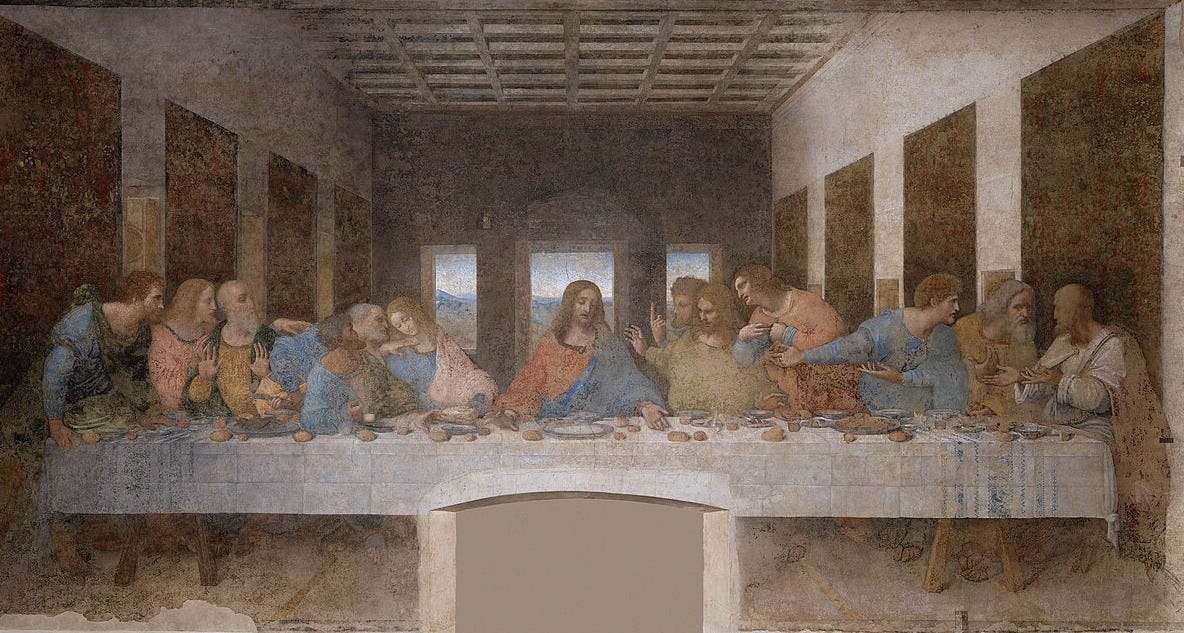Today is Maundy Thursday.
I came here to write a letter celebrating the annual Christian day of foot washing, about how Jesus washed his disciples’ feet as an example of how we should humble ourselves before God and each other.
And then I listened to today’s Ezra Klein episode (gift link) about the illegal deportation of Kilmar Armando Abrego Garcia.
I’ve argued repeatedly that, despite the verbal and physical protests of many, the U.S. Constitution continues to operate more or less as intended: to ensure the prosperity of (landed) white men.
It has also provided for the general rule of law and order that is required to allow free-market capitalism to deliver that prosperity.
Until now.
The president is engaged in a conspiracy to controvert the law.
If Abrego Garcia can be deported to El Salvador for alleged gang activity, so can I. So can you. Sure, I’m a white American, which might grant me slightly more restraint than a foreign-born spouse of a U.S. citizen. But as an outspoken critic? Not much.
This is how an autocrat becomes a tyrant.
It is tempting to look away, to imagine that there is nothing I (or you) can do about this, that it doesn’t and will never affect me, you, or the people we love.
But that’s a lie of convenience.
The U.S. Constitution will likely break under the combined pressure of both Presidential malfeasance and Congressional negligence.
The foxes have taken over the henhouse.
So now what?
This is the question the media will not ask as they report the development of this story.
What do we do now that the federal government has established the precedent that it can arrest and deport people at will?
At first glance, it would seem “the people” of America have little recourse. Taking to the streets won’t work because even more people will be shot.
But it may soon be time to deploy the only means of consequence we have to exert ourselves on a political system headed off the rails: a general strike.
The greatest power any American holds is economic; individually, our economic power is meaningless. But together, the American workforce has a lot of power.
The best way to exert ourselves is to stay home, to do and buy nothing.
For a general strike to be effective, the vast majority of Americans would have to refrain from all economic activity. We’d have to stop transacting, both as employees and as customers.
But it’s easier said than done.
Our fractured, isolated social landscape isn’t set up to exert this kind of pressure.
We don’t (yet) have the kind of social solidarity needed to call or sustain a strike.
We have to build it, one conversation at a time.
That’s the answer to the question, what now?
We organize.
Not for an election (how quaint) but for a bigger kind of direct action.
What’s required to sustain a general strike?
We’d need to discover a degree of social solidarity we haven’t had as a society since World War II.
We need to build, plant, and tend community gardens that could feed us for weeks, and maybe months.
We need to exchange phone numbers with our neighbors and create community text groups.
We need to invite our neighbors over for dinner, and learn their childrens’ names.
Will we demand impeachment?
Congressional action?
We need to host community meetings and decide what we’re willing to stand for, and what we won’t accept.
We need to assess how long we’re willing to hold out against inaction, how much economic pain we can accept as we exert pressure, how far we’re willing to tank the economy before we quit.
And we need to call our friends across town, across the state, across the country, and encourage them to do the same.
America has never marshaled a national strike. But we’ve also never had a president who’s willing to illegally deport people to Central American gang prisons.
Unusual circumstances demand unusual action.
Maybe Maundy Thursday is a logical day on which to start organizing.
Jesus somehow knew he was about to be martyred, and he invited 13 of his closest friends out for dinner to give them instructions on how to live in his absence.
Two thousand years later, 2.38 billion people worldwide are following his example.
Every week, Catholics and Mainline Protestants re-enact that meal as a way to reaffirm their commitment to love each other the way God loved “us.”
Who, exactly, is “us”?
In the early days of the church, to be a Christian was to risk the same fate as Jesus. Maybe the stakes of the commitment being impossibly high created a crucible of commitment: either you were an accessory to hapless brutality, or you were taking your life in your hands to stand against it.
I’ve never been a biblical literalist and my study of the Bible is elementary at best. But I do believe that Jesus offers a peek example of what it means to be an excellent human.
Tomorrow, Christians will mark the stations of the cross in observance of the brutality of Christ’s death.
But today, we ask:
Whose feet are you willing to wash to show others the depth of your humility and selfless love?
Are you interested in organizing your neighborhood or your community to prepare for solidarity action?
Leave a comment or drop me a line.





